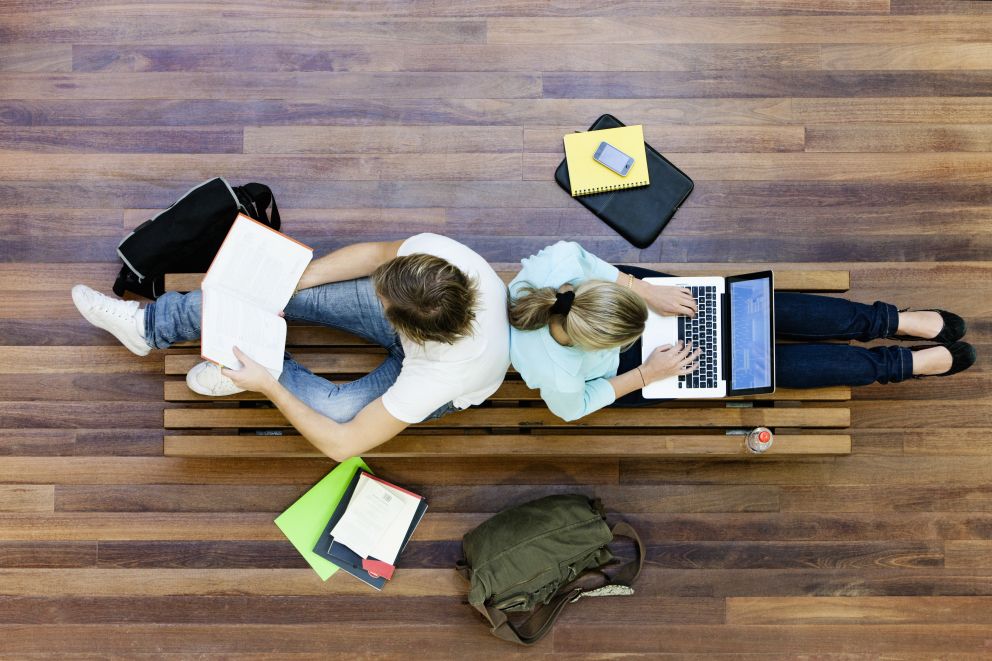Top Colleges Which Superscore the SAT & ACT — With Tips for Your Own Score Reporting Strategy
Read now/f/64062/1200x676/207c5254d4/benefits-of-ivy-league-header.jpg)
/f/64062/1920x600/68ed7d9622/purdue-university.jpg)

Over the past ten years, teens and young adults have been consistently the two groups most likely to use the internet. Research shows that 95% of teens have access to a smartphone, and 45% say they are online 'almost constantly'.
With the increasing presence and intelligence the internet has, cybersecurity is more important now more than ever. Keeping your networks, systems and programs safe from digital attacks is becoming a greater concern, especially for college students.
No matter where you’re studying in the world, a laptop is essential for completing assignments, studying material and even attending classes! Without a laptop, it’s nearly impossible to complete your duties as a student, so it’s important to keep your computer and its contents secure and protected.
While campus safety is often a major concern for most parents, it's normal to also worry for their security online.
Well... it’s Computer Security Day, so we’ve compiled a list of tips to keep your laptop and accounts safe from hackers and thieves!
Many colleges offer to install a security application for free, especially because many campuses only provide one or two wifi networks for the whole campus, making it even easier for hackers to compromise your personal information and allowing them to reach hundreds of users through just one breech.
If you receive an email or message from someone you don’t know (or even someone you do know) that contains links or attachments that look like they could be spam… do not open them! Delete immediately and clear your trash bin. These could contain harmful viruses.
This may seem crazy… as I’m sure you’ve heard about the debt credit cards can instill if they aren’t paid off correctly, but shopping online with a credit card can be much safer than with a debit card. Your debit card is hooked up to your bank account, which means if someone steals your debit card information, they will have direct access to all the money in your account. Be sure to check your credit card statement frequently and alert your bank immediately if you experience any suspicious activity. If you end up getting a credit card, keep up with monthly payments to ensure you aren’t charged costly fees for paying late.
We highly recommend investing in a portable hard drive, especially during finals season. There’s nothing worse than losing months of hard work due to a security breach. Accidents happen, so you should be prepared for anything. While you might not be hacked, you could spill a cup of coffee on your laptop and lose everything. Better to be safe than sorry!
Never leave your dorm room unlocked! Not only is your laptop stored in there, but so are all your personal belongings (and your roommate’s, if you have one). Be careful who you provide access to your room as well. While someone may seem friendly, it’s best to make sure no one has access to your room without you being there. Also, avoid storing your laptop in your car, as it could easily be broken into and stolen.
If you buy a new laptop or phone while on campus, be sure to wipe your old one clean before reselling. It can sometimes be complicated doing this properly, so make sure you follow instructions online closely or take your device to a local library or store for extra support.
When creating passwords for your accounts, use one that includes capital letters and unique characters. Avoid using things like ‘password’ or ‘123456’. Also, be sure to use different variations of your password for different accounts. By using the same password for each one, you could jeopardize a hacker gaining access to all your accounts.
While social media is a great platform to update your friends and family on what is happening in your life, it’s definitely smart to monitor who is following your account. Based on your followers, you should consider sensoring what you share on social media. If you have thousands of followers, be careful posting your locations, etc. as this could give someone a heads up that you are out of town and your things back at home are unattended. We recommend going private and monitoring your followers to ensure your pictures and information are safe.
Most email providers now offer this step to further protect accounts. This may seem unnecessary, but it helps to make your password even stronger and can protect you from being hacked. You can typically set this up on your mobile device or through an application.
Passwords exist for a reason, they are designed to be private and are for your eyes only. Be careful when sharing your password, as giving someone this confidential information provides them with direct access to your accounts. Sharing Netflix is caring, but when your password for Netflix is your password for everything… maybe it’s best to keep it to yourself.